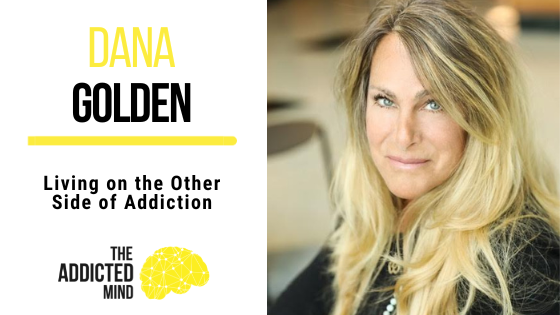What is it like living on the other side of addiction?
Certified recovery and family addiction coach, Dana Golden, has her own story to tell, having been on the other side of addiction.
Growing up, Dana’s dad had a process addiction – gambling, sex, alcohol, you name it. From that, she learned some very maladaptive behaviors to cope with, which she carried over later on with her other relationships, including her then-husband. She eventually got sick and tired of being sick and tired.
Having been brought up with the idea that she needs a man, she finally understood that her whole recovery journey was all about advocating for herself and celebrating her independence as a woman.
Fast-forward to today, Dana and her ex-husband have come full circle, having co-authored the book “Addiction Rescue: The NO-BS Guide to Recovery,” and maintaining a great relationship, now as business partners and certified recovery coaches, helping other families heal.
What Recovery Looks Like On The Other Side
You need to gather the strength to advocate for yourself so you can get through a dysfunctional relationship. It doesn’t matter how many times you fall down, it’s about picking yourself up again and how many times you can get up – because anything’s possible.
Separating the Person From the Behavior
Separate the person struggling with addiction from the addiction itself. Just because you don’t love the person’s behavior doesn’t mean you no longer love the person anymore. And while you want to fully support the other person, you have to be able to set and keep healthy boundaries to protect yourself.
Relapse is a part of addiction. It doesn’t mean you should expect it. But you have to understand it might happen so you won’t end up getting frustrated. You have to be realistic about it.
Every time there’s a relapse, it’s an opportunity for growth. It’s an opportunity to understand the triggers and what happened so you can get back on the road to recovery faster.
By being open to such possibility, you’re setting the stage in a way that it can’t hurt you in the event a relapse happens.
Setting Boundaries
Boundaries are so important. Before you can set them, you have to know that it’s a boundary you can keep.
Having boundaries is the quickest way to get your loved one to change their behavior. If you don’t change your behavior and set those boundaries, they would also see no need to change since addicts rely on two things – being comfortable and being out of pain.
If you want to learn more about recovery on the other side of addiction, check out https://theaddictedmind.com/190

